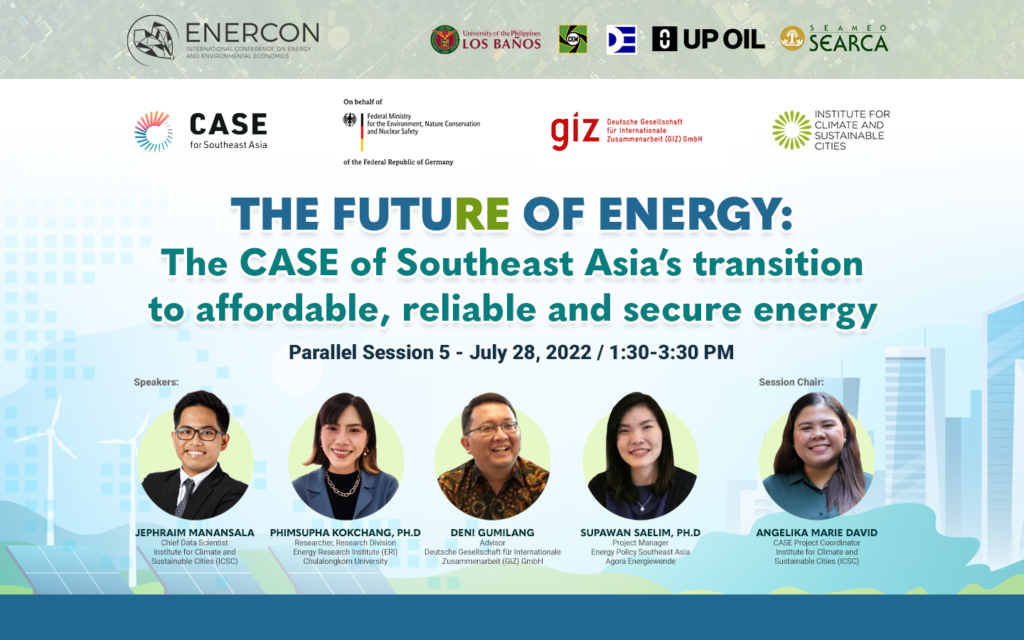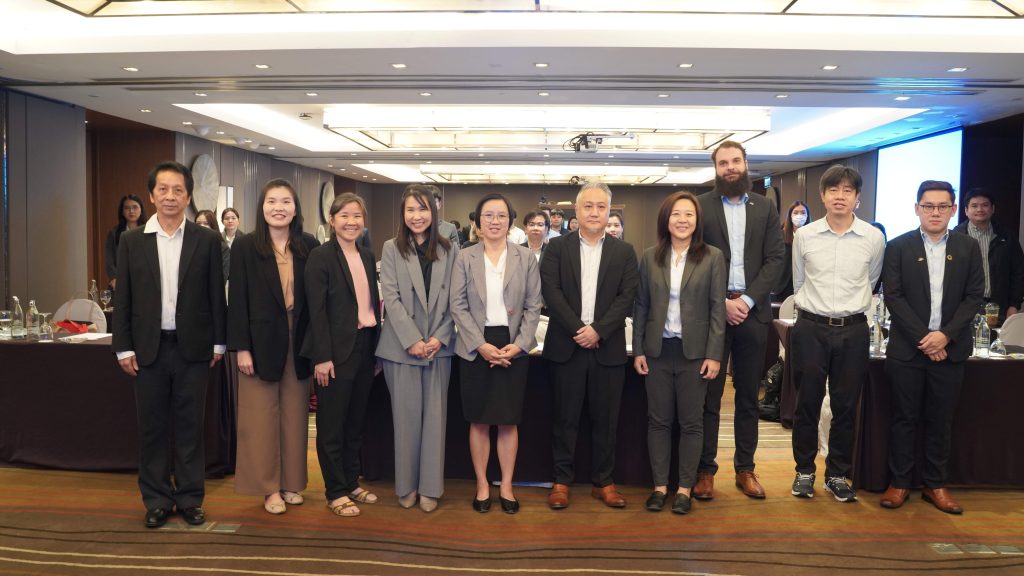Clean, Affordable and Secure Energy for Southeast Asia (CASE)
PRESS RELEASE
Renewable energy experts from the Philippines, Thailand, and Indonesia presented the status, challenges, and opportunities in the realm of renewable energy in their respective countries during Session 5 of the Enercon 2022: The 3rd International Conference on Energy and Environmental Economics hosted by the Department of Economics of the University of the Philippines Los Baños over a virtual forum on Thursday, July 28.
Jephraim Manansala, the chief data scientist of the Philippine-based Institute for Climate and Sustainable Cities (ICSC), kicked off the session with his discussion on the reliability and viability of variable Renewable Energy sources (vRE) in the Philippines over the last four years, as opposed to the existing coal dependency. In his presentation, Manansala emphasized the benefits of vRE, saying that compared to coals, vREs are cheaper and more reliable.
“When we have too many baseload power plants, we will have too much power when we do not need it and not enough when we do. What we need is a flexible generation to have enough power whenever we need it,” Manansala said.
For her part, Dr. Phimsupha Kokchang, researcher of Thailand’s Energy Research Institute (ERI), Chulalongkorn University, laid down the challenges relating to energy transition in the context of the Thailand power sector.
“The concept of the energy transition has been widely adopted by the national government and regional organizations. Energy transition in Thailand means that the Thai energy sector transitioning to a cleaner system with a higher share of renewable energy and energy efficiency. However, several major challenges must be addressed in order to achieve the energy transition,” she said.
Deni Gumilang, advisor of Deutsche Gesellschaft für Internationale Zusammenarbeit (GIZ) GmbH, meanwhile, presented the importance of “de-risking investments for renewable energy” in Indonesia. Citing various studies, Gumilang said “de-risking” could be Indonesia’s solution to the barriers to renewable energy development.
“Several implementations of policy de-risking instruments include improving RE target and policy in terms of its clarity, consistency, credibility, and coherence; reforming incentives and pricing policies, especially on pricing policy and subsidy; creating an effective and efficient permit and procurement process to provide security and certainty to investors; increasing project risk management quality by providing standards, ratings, and technical support; and enhancing project feasibility and credibility by facilitating research, project development, and capacity building,” Gumilang said.
For the last part of the forum, Dr. Supawan Saelim, project manager of Agora Energiewende, synthesized the CASE of Southeast Asia’s archetype pathways for energy transition, underscoring the role of the power sector transition in the decarbonization of other energy-intensive sectors.
“Power section transition will be a key to achieving net-zero emissions, as it will enable other energy-intensive sectors to be decarbonized through electrification such as the electric vehicles in the transport sector and heat pumps in the industrial sector,” Saelim said.
Session 5 of the forum was organized by the Clean, Affordable and Secure Energy for Southeast Asia (CASE), a regional initiative jointly implemented by GIZ and various international and local expert organizations in the area of sustainable energy transformation and climate change. In the Philippines, the program is jointly implemented by the Department of Energy – Renewable Energy Management Bureau (DOE-REMB) as the political partner and ICSC as the local expert organization.
CONTACT
AC Dimatatac, ICSC: media@icsc.ngo, +63 917 149 5649, +63 998 546 9788
###




